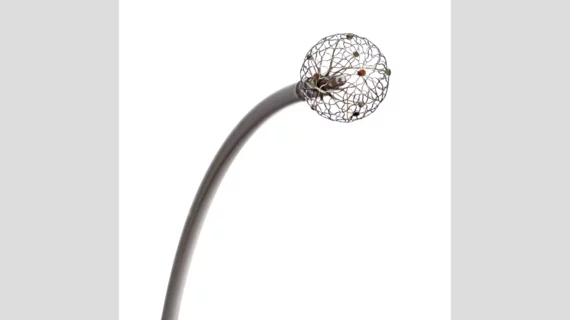Medtronic reaches milestone in study of pulsed-field ablation and mapping catheter for AFib
Medtronic has reached a significant milestone in its evaluation of the safety and effectiveness of the Sphere-9 mapping and ablation catheter and Affera mapping and cardiac navigation platform for persistent atrial fibrillation (AFib).
The company announced Monday, Dec. 5, that it has completed the enrollment and treatment stages of the SPHERE Per-AF study, a multicenter randomized clinical trial focused on 477 patients from 23 different facilities in the United States and Europe. Patients will now be followed for 12 months. The goal of this treatment is to map and diagnose arrhythmias with a single catheter, providing users with more options when performing ablation procedures.
The Affera technology is a relatively new addition to Medtronic’s product line: Medtronic finalized the acquisition of Affera in August in a deal reportedly worth $925 million. Medtronic pursued the Affera acquisition to improve its mapping and navigation offerings. Medtronic already had a 3% ownership in Affera before the deal was announced.
Anticipating the results of the Medtronic pulsed field ablation trial
St. Bernards Medical Center in Jonesboro, Arkansas, was one of many U.S. sites participating in the SPHERE Per-AF Trial.
“During the trial, my observations and experience with the novel Affera system have been very promising,” Devi Nair, MD, director of cardiac electrophysiology & research for St. Bernards, said in a prepared statement. “Unlike conventional technologies, I've been impressed with the ability to both map and ablate with the option of dual energy sources, with one catheter. I look forward to the results of the trial and remain optimistically enthusiastic as I continue to understand the safety and efficacy of the Sphere 9 ablation catheter.”
“Thanks to the innovation and expertise within Affera and the support of our Medtronic team, together we're able to continue to evaluate new, best-in-class solutions and commercialize a full, comprehensive portfolio to help physicians treat patients around the world,” added Rebecca Seidel, president of Medtronic’s cardiac ablations solutions business.

